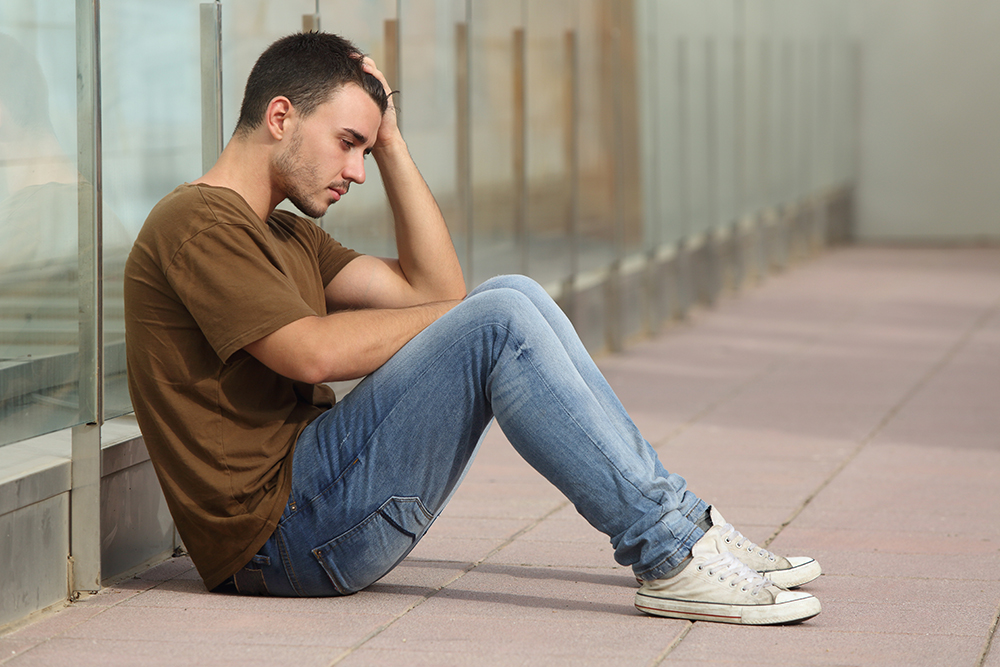Cannabis products can seem like a quick and easy emotional release – especially young men facing pressure to stay composed. But what happens when marijuana use becomes a go-to response for more serious issues like depression?
At PACE Recovery, we frequently work with young men who began using marijuana to ease symptoms of sadness, hopelessness or anxiety – only to find themselves trapped in a cycle of worsening mental health and substance dependence. While marijuana may offer temporary relief, it often leads to more complex problems over time.
Why Marijuana Is a Risky Coping Mechanism
Depression is an illness marked by persistent feelings of sadness, emptiness, fatigue and apathy. Marijuana can offer fleeting relief by calming racing thoughts, helping you sleep or elevating your mood. However, this short-term effect can be misleading.
Regular marijuana use can contribute to or worsen depression in several ways.
- THC affects neurotransmitters like dopamine, which regulate mood. Over time, this can lead to emotional numbing or increased depressive symptoms.
- Reducing your motivation and energy reinforces the cycle of apathy and withdrawal.
- Interfering with REM sleep, which is crucial for emotional regulation and mental health recovery.
- Amplifying feelings of isolation and causing you to retreat from friends, family or hobbies.
In some cases, high-THC marijuana strains can trigger psychosis, including paranoia or hallucinations – further complicating your mental health.
Dual Diagnosis: Depression and Marijuana Addiction
Using marijuana to cope with depression often leads to a dual diagnosis – a co-occurring mental health disorder and substance use disorder. This combination can be especially challenging to treat without professional help, as each condition fuels the other.
The result is a dangerous cycle where depression and marijuana abuse worsen in tandem over time. Habitual marijuana use may:
- Worsen your emotional instability
- Cause dependence, where you rely on cannabis to function in daily life
- Delay access to effective treatment, like therapy or medication
- Create withdrawal symptoms such as irritability, insomnia or cravings when attempting to quit
Recognizing When Weed Use Has Become a Problem
Not all marijuana use leads to addiction, but frequent use – especially when tied to emotional distress – is a red flag. Some signs that weed may be contributing to or worsening your depression include:
- Needing marijuana to get through the day
- Using weed alone or in secret
- Losing interest in hobbies or responsibilities
- Feeling more anxious, withdrawn or emotionally flat
- Experiencing memory or concentration issues
- Being unable to stop despite negative effects on mood, school or relationships
If you recognize yourself in these examples, it’s time to consider that marijuana may be masking a deeper issue rather than solving it.
A Better Way to Cope: Treatment at PACE Recovery
Marijuana may seem like a harmless escape, but it often creates more problems than it solves for those struggling with depression. PACE Recovery helps young men break the cycle of self-medication and emotional suffering. Our comprehensive, dual-diagnosis approach is ideal for clients who feel stuck, numb or emotionally disconnected.
We go beyond superficial symptoms for holistic healing, providing a shame-free, judgment-free space where you can explore your emotions and develop healthier ways to cope with life’s challenges.
- Individual and group therapy tailored to young men’s emotional needs
- Psychiatric support for co-occurring depression and addiction
- Relapse prevention strategies rooted in accountability and structure
- Sober activities like surfing, team sports, fitness and community involvement – showing that joy and fulfillment are possible without substances
Contact PACE Recovery today to learn how our program can equip you with the tools you need to overcome depression and substance use and build a life rooted in purpose, connection and authentic wellness.



